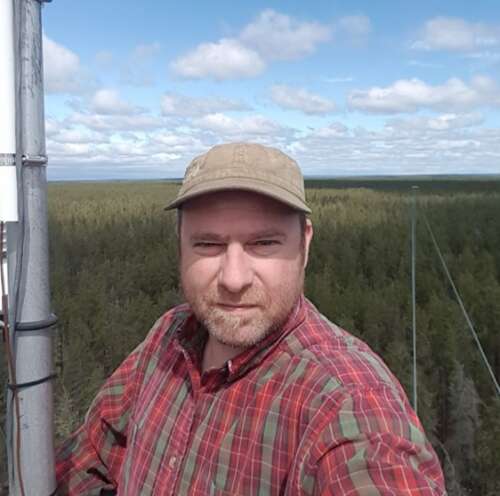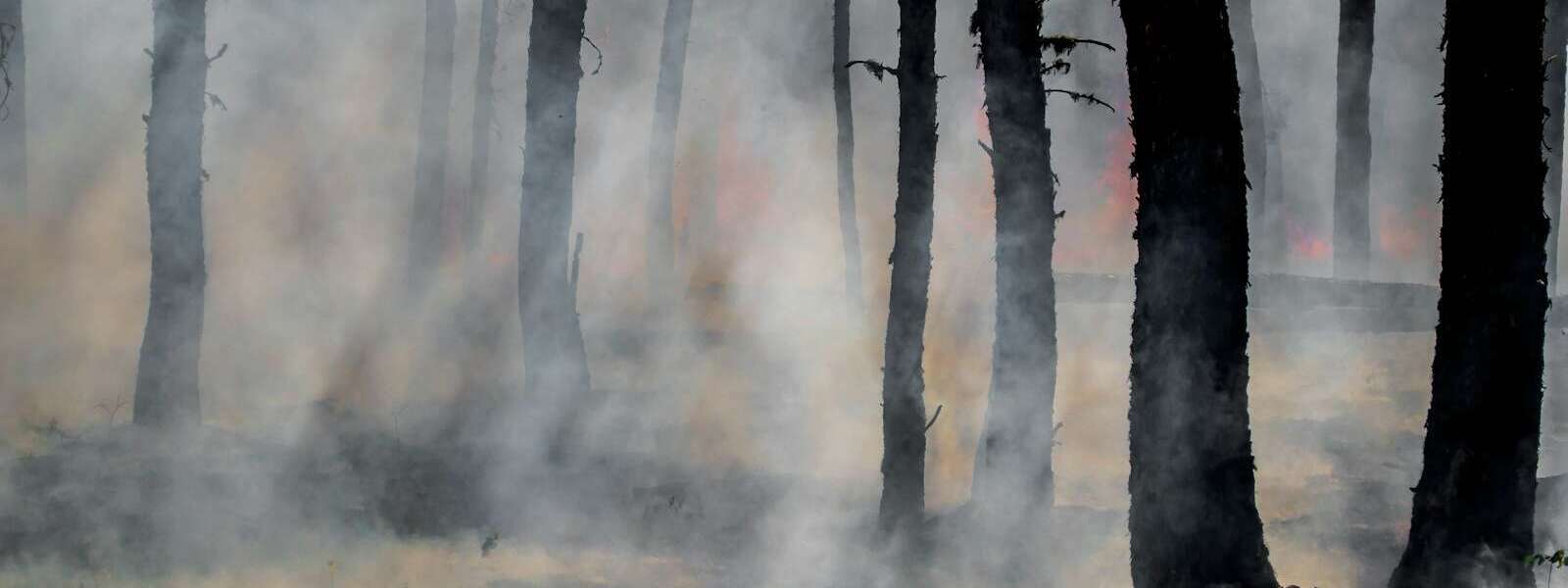As wildfires rage in Western Canada and burn popular landmarks like Jasper National Park, a University of Guelph forestry and climatology researcher says changes to zoning bylaws could help lessen wildfire devastation.

Dr. Ze’ev Gedalof is a professor in the Department of Geography, Environment and Geomatics and researches forest ecosystem dynamics, forest management, climatic variability and natural resource management.
Gedalof suggests people living in high-risk areas can take some personal action to protect themselves from wildfires, such as using metal roofs and other building materials that are not as likely to ignite and keeping firewood away from garages or exterior walls. But municipalities can also help reduce fire risk through zoning and building codes.
“Just as we’re advising people not to build in flood plains, we need to start changing bylaws and zoning regulations to make sure that people aren’t building in places that are liable to catch on fire,” he says. “Long-term solutions need to address climate change, but right now, we need solutions that minimize people’s risks.”
While this fire season hasn’t produced as much devastation as 2023, Gedalof says it’s still above the 10-year average.
“We can expect this to be an inter-annual problem,” he says, adding that devastating fire seasons are more likely to happen in our current climate.
“The odds have shifted in favour of years like 2023.”
Predicting what will happen during the rest of this season is difficult, since weather patterns can change in an instant. Gedalof says resources are already stretched thin and there are likely more fires to come.
“That means some fires burning right now, unless they’re a threat to something like historical Canadian landmarks or suburban Vancouver, will continue to burn because our resources are pointed in other directions,” he says.
Gedalof is available for interviews.
Contact:
Dr. Ze’ev Gedalof
zgedalof@uoguelph.ca
